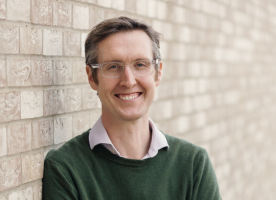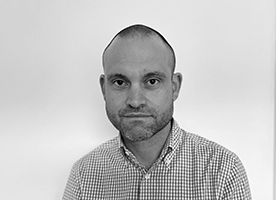Our health is shaped by complex interactions between many factors including the accessibility and quality of health and care services, our individual behaviours and socioeconomic determinants such as housing and income [1]. Our multifaceted experience of these interactions leads to differences the health conditions they experience, the care that is available to us and how long we are likely to live.
Worse health outcomes tend to occur when people have limited access to services, experience poorer-quality care or practice more risky health-related behaviours [2]. People living in the poorest areas have a life expectancy that is a decade shorter than those living in the richest areas – life expectancy is 76 years in Blackpool and 86 years in Kensington, London [3].
The systematic variation of factors that influence our health is termed ‘health inequalities’, which NHS England defines as ’unfair and unavoidable differences in health within the population and between different groups within society [4]’. The effects of inequalities can be multiplied for those experiencing more than one such difference.
Health inequalities among different groups of people
People with learning disabilities – 63 years is the median age at death (cf. 82 for males and 86 for females in England, 2018-20).
Men who are homeless – 45 is the mean age at death. This is 42 for women who are homeless.
People who belong to the Gypsy or Irish Traveller community – 12.5% report being in bad or very bad health, more than double the general population.
People who are LGBTIQ+ – 52% have experienced depression, compared with 16% in the general population.
Health inequalities are by measured by differences in health outcomes among different groups of people. Health and care practitioners and academics have decades worth of evidence about the causes of health inequalities. Yet, there has been little progress in addressing them – in other words we know why they exist, but far less about what we can do about them.
The Health Equity Evidence Centre: understanding what actually works to address health inequalities
Stemming from a partnership with the NHS England East of England Primary Care transformation team, and led by Dr John Ford (Queen Mary University of London and University of Cambridge) the Health Equity Evidence Centre (HEEC) is ‘a hub providing evidence-informed solutions for equitable health and care’[5]. The group of researchers, practitioners and computer scientists believe that good health and care is not a privilege but a fundamental right for everyone irrespective of their background, ethnicity or socioeconomic status. In support of its strong belief, the HEEC is building a robust evidence base of what works to address health and care inequalities. At present it focuses on primary care; where 90% of patient contacts with the NHS take place.
The number of articles published about primary care inequalities has grown by 300% over the past 10 years [5]. Not surprisingly then, navigating published research to find the most effective and actioned insights is one of the HEEC’s biggest challenges. Typically, sorting through and identifying research is labour intensive, takes months and can result in out-of-date findings. The HEEC is using machine-learning software, over the traditional academic approach, and is building ‘evidence maps’ – a visual representation of the body of evidence in a specific area – and briefings around what works. The HEEC gets robust, easily accessible information to primary care at pace.
HEEC’s algorithms identify relevant academic articles, which are then tagged and added to the live evidence maps each month. Once created, the maps are available to anyone who wants to view them. While the HEEC draws significant advantages from the arena of artificial intelligence, it’s work is not completely automated but rather augmented with researchers checking, tagging and synthesising the articles – thanks to the innovative use of advanced technologies a process that would have taken months can now be completed in days.
The HEEC team also have an innovative take on approaching and handling evidence. Moving away from traditionally strict evidence eligibility criteria towards the principle of transferrable evidence. Their approach allows the team to transfer evidence logically and accurately across different population groups and means that they can confidently generate rich evidence-informed recommendations. Applied to many different services HEEC’s approach cover areas from cancer screening to health checks for patients with severe mental illness – and in doing so helps address some of the biggest challenges to health equity in the primary care setting.
How the NHS approaches health inequalities nationally
The NHS Long Term Plan places tackling health inequalities at the heart of NHS goals for this decade. As part of this focus, NHS England developed Core20PLUS5 – an approach to reducing healthcare inequalities at national and system level [6].
Core20PLUS5 helps to drive health equity within defined communities across specific initiatives within maternity, severe mental illness, chronic respiratory disease, early cancer diagnosis and hypertension.
Making the most of our opportunity to learn and act
Dr John Ford, director of Health Equity Evidence Centre
“Health inequalities have been around for decades and are well described. Instigated by an inequalities-compounding pandemic, there are numerous health inequalities programmes and services to address the health gap. We’ve been here before – in 2000 we had a cross-government strategy to address health inequalities with a plethora of initiatives which were successful in closing the gap in life expectancy and infant mortality. However, during the 2000s we failed to build the evidence base of what works and so practitioners and policy makers are often left in the dark about how to address inequalities.
To make progress on health inequalities, it’s paramount that we build an evidence-driven collective understanding of what works. We’re never going to have an off-the-shelf list of interventions – there are rarely simple solutions for complex problems. But we can start to identify types of services and guiding principles that are likely to address inequalities. For example, we know that services with lots of hoops for patients to jump through are likely to increase inequalities. It’s only by building the evidence-base and our understanding of what addressing equalities that we’re going to make progress. If we don’t, we risk making the same mistakes as 25 years ago and missing the opportunity to learn what works”.
Getting ‘wins’ to those who need them most
Dr Gary Howsam, GP and chief clinical improvement officer at Cambridgeshire and Peterborough ICB.
“As a front-line GP and in my ICB system leadership role I see every day not just the impact of health inequalities on the people we are in service of and provide care for, but also the hard work and energy primary care staff are dedicating to reducing these inequalities, with a passion to ensure everyone gets equity of access to services and ultimately better outcomes. GP’s have known about the ‘inverse care law’ for a long time and yet despite our best efforts there is still a misalignment between those who do access and benefit from services, and those that don’t – the very people whose health and care needs are higher and who would benefit most from doing so.
Teams are working very hard to meet rising demand in General Practice, and have limited capacity to focus on tackling health inequalities alongside their day-to-day workload, having an evidence based, collective understanding of where to focus efforts, to have maximum impact, is an invaluable resource. Utilising this knowledge to enable teams to concentrate their efforts on the areas the evidence shows will lead to ‘wins’ for their population will help maintain engagement and momentum and hopefully widen participation in this most important work.”
Visit the Health Equity Evidence centre here. To keep up-to-date with its work, consider subscribing to a monthly newsletter or follow HEEC on LinkedIn or Twitter.
If you are part of an ICB, PCN a or a primary care practitioner and would like to collaborate contact Dr John Ford.

John is a Senior Clinical Lecturer in Health Equity at Queen Mary University of London, an Honorary Visiting Fellow at the University of Cambridge, and an Honorary Public Health Consultant at NHS England.
John’s main research interest is interventions and policies that seek to promote health equity and reduce health inequalities. He has range of interests relating to equitable health, including so called “intervention-generated inequalities” in health care settings, local system-level interventions to address inequalities, health care workforce inequalities, national policies and strategies to address inequalities and how primary care can address health and health care inequalities.

Gary has been a GP in and around Peterborough for the last 15 years. He initially trained as a dentist and then after his medical undergraduate training spent several years in various hospital posts, mainly in surgical specialities, before undertaking his specialist GP training.
He is on the executive team of NHS Cambridgeshire and Peterborough ICB (Integrated Care Board), as Chief Clinical Improvement Officer Gary was Chair of the Cambridgeshire and Peterborough Clinical Commissioning Group between 2016 and 2022, Vice Chair (External Affairs) of the Royal College of General Practitioners(2019-2022) and a former member of the Council of the Academy of Medical Royal Colleges.
Share your idea
Do you have a great idea that could deliver meaningful change in the real world?
Get involved